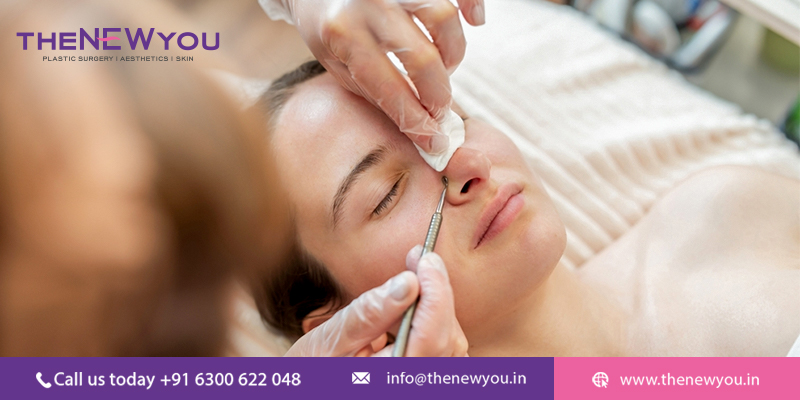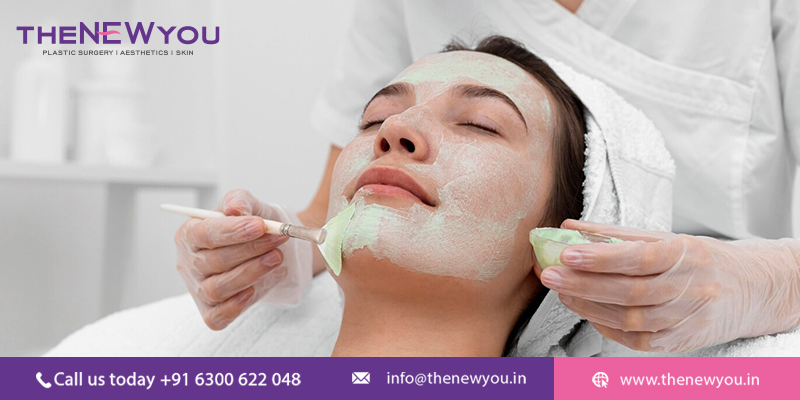The signs of aging can be taxing for most of us. Those deep frown lines or crow’s feet and yes, that uneven skin tone. Uneven skin tone or pigmentation may mean a smattering of freckles or those big uneven brown patches on different parts of your body such as your hands, décolletage, and shoulder areas. These dark spots are known as pigmentation which is caused by sun exposure from the UVA rays which etches deep into your skin and may lead to skin aging. So, what are the reasons for pigmentation?
Characteristics of Pigmentation or Hyperpigmentations
Hyperpigmentation is a skin condition where you will notice dark patches which occurs due to excessive melanin or a skin pigment production. This form of skin condition does not ail particular age group or category of people, but can be found in people of the Mediterranean, Asian, Latin, or African origin. Also, it affects various parts of the body that includes hands, face, and neck. Check out some of the most common factors that lead to pigmentation.
- Sun exposure
Sun exposure can cause hyperpigmentation. It causes inflammation of the skin which is a result of UV rays present in sunlight. This skin inflammation can stimulate melanocytes (melanin-generating skin cells), lending you dark patches of skin.
- Hormonal changes
Whether it is consumption of the oral contraceptive pills or pregnancy, hormonal changes in your body can create havoc on the skin and yes they stimulate the growth of melanin. This disruption of the chemical balance of your body can cause hyperpigmentation, commonly known as ‘melasma’ ( it is a common skin condition and it is characterized by grey-brown patches all over the skin surface).
- Specific drugs
Sometimes hyperpigmentation can result from taking in certain drugs and is a result of certain medications such as hormone treatments, antibiotics, anti-seizure drugs and Non-Steroidal Anti-Inflammatory Drugs (NSAIDs). This is a reaction to certain drugs with melanin that results in the formation of a drug-pigment complex that leads to the formation of dark patches on the skin.
- Heredity
You can have pigmentation problems if it runs in the family. The genes act as a carrier and pass onto the next generation.
- Acne
Acne is tough on the skin, leaving behind dark spots after they dry up. These dark spots are also known as Post Inflammatory Hyperpigmentation (PIH). Sometimes the skin, in response to a skin infection produces excessive melanin to protect your skin.
- Excessive use of harsh chemical products
Pretty-looking skin products sometimes are made up of harsh chemicals, that are an integral part of chemical products such as hair removing creams, wax, etc. and can cause skin inflammation leading to Post Inflammatory Hyperpigmentation.
Now for the treatment options, you can try dermatological solutions which can provide you with effective relief from these pigmentation issues. One is chemical peel, there are others which can give you amazing solutions. Take a look at some of the solutions here,
Top Dermatological Solutions for Pigmentation Problems
You can contact a qualified dermatologist from a reputed antiaging treatment clinic in your area.
For effective pigmentation treatment solutions, take a look at some of them here,
- Chemical Peels – Chemical peels are a chemical agent applied to the skin, which destroys a part or of the entire epidermis, with or without the underlying dermis, in a controlled fashion. This helps remove from some of the superficial lesions. This gives you an almost new skin with deeper tissues. Chemical peels work as they are a process that removes unwanted melanin via a process that induces a chemical burn to the skin.
- Laser Solutions – If chemical peels aren’t quite your thing or you are looking for something extra try a laser device. A laser is chosen catering to your individualistic hyperpigmentation problems, that are close to the surface of the skin and some of them are much deeper. The new PiQo4 Laser has the power to treat different type of skin issues. The use of heat or energy must be controlled so that it does not worsen the condition, instead, it treats it just right catering to your specific condition.
- Intense Pulsed Light (IPL) – IPL or intense pulsed light is a broadband source of light that is used for photorejuvenation. It not only reduces pigmentation marks but also gives you glowing, radiant skin with minimal downtime. It taps on to the shallow wounds in the skin that stimulates skin renewal and gets rid of the superficial damage, skin problems, and excess skin pigmentation.
- Platelet-rich plasma treatment – Most patients can undergo PRP and micro-needling treatment each for the face and body. The best part of a treatment like this is, it requires minimal downtime, and the results are suitable for most patient’s skin needs. This kind of treatment is combined with micro needling therapy (or collagen induction therapy) which prods the skin causing micro-injuries in the skin, helping activate new collagen and elastin, the powerful combination of micro needling and PRP helps give a boost to the skin texture and tone, reducing the appearance of pores, helps smoothen the wrinkles, and fine lines and reduce the appearance of hyperpigmentation and scarring ( a few of it is acne, stretch marks and so on). This is a particularly great treatment option for women looking for high-reward ‘maintenance’ treatment, or for specific occasions where you need to make your complexion stand out and for you to appear your best.
If you are treating hyperpigmentation problems at home, try over-the-counter lotions containing kojic acid, AHAs, licorice extract, ascorbic acid (vitamin C), and tranexamic acid, all of which have the prowess to reduce hyperpigmentation.
Can you prevent pigmentation? Yes, you can, it is important to take care of your skin, in every which way. And the number one prevention protocol is by applying an adequate amount of sunscreen, each time you step out into the sun. Remember, the sun protection factor must be high. This is one of the most effective sensitive skin care tips, so if your skin is prone to pigmentation, it is all the more important to stick to a regular skin care routine to prevent pigmentation.










